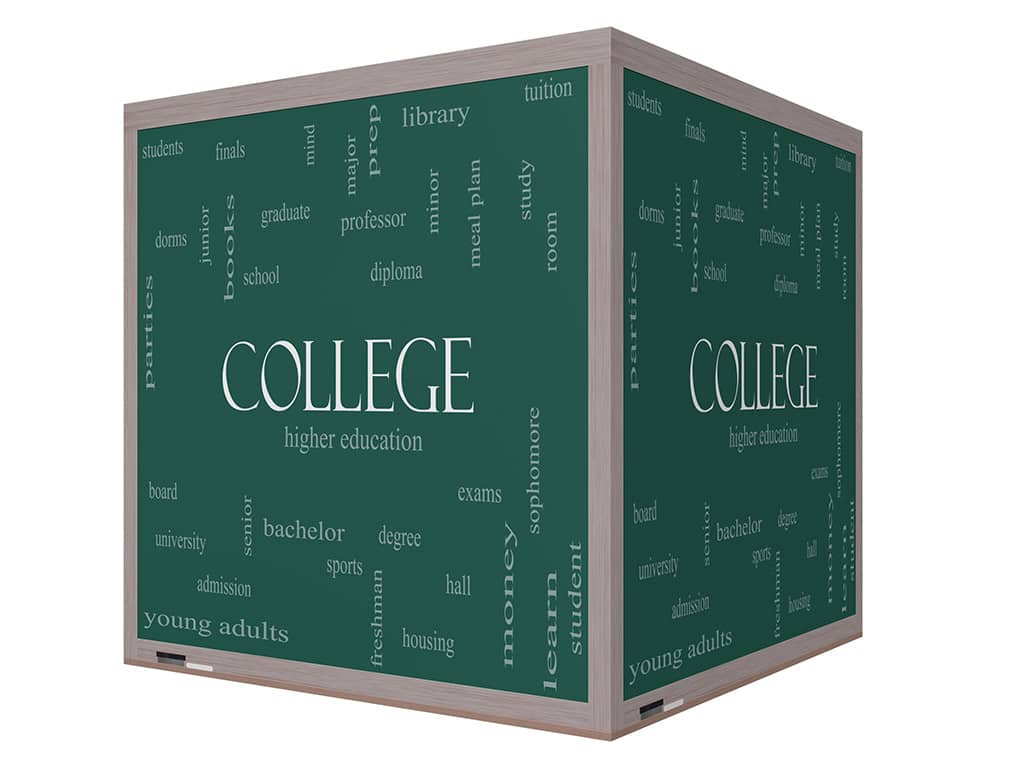College is the most exciting time of many students’ lives. It’s a new chapter many take on with delight, but far too many also rush into it and make plenty of mistakes. They go with schools they’ve heard about, which lets them experience living alone for the first time.
Many go into debt or neglect quality schools because they focus only on the top. They also don’t do proper research or carry outdated expectations with them.
Take a look at our guide on the seven most common mistakes with choosing colleges and how to avoid them.
-
Contents
Being Fixated on Rankings
This is the first mistake many students run into when looking into colleges. It’s become a standard college search strategy to base your short-list on top rankings. Most students will pick a handful of top schools and then add a local “safe” school as a last resort.
It’s counterproductive to have everything riding on getting into a top school. There’s nothing wrong with wanting to go the ivy league route, but there’s more to consider.
You have to consider if the school has what you need to pursue what you’re passionate about. Are the higher ranking and price tag worth it compared to lower-ranked schools? You have to realize that the quality of education and outcomes come from more than rank.
A school outside the top 10 or 30 is more than capable of providing you with a competitive degree. With global competition, even a school outside the global top 50 or 100 is worth considering. Do your research and apply to your dream schools, but don’t look down on the other contenders.
-
Assuming STEM is the Only Way
It isn’t uncommon for younger students to aim for a STEM degree. Often many feel that it’s the only path forward, and they deride a career in liberal arts. However, this isn’t always true or the best decision.
Not everyone is good at or interested in STEM, and experiencing burnout or excessive mental stress is a real worry. Liberal arts degrees fill this need. They also challenge students to improve their thinking skills even outside of schooling.
It’s so much more than “English” or “communications.” Liberal arts is all about experiencing and learning the core skills you need to leave you set for life. It also comes without the pressure and stress many STEM pursuers have.
This provides a more fulfilled and accomplished college experience too. A liberal arts degree is also diverse and flexible. Liberal art teaches you critical thinking skills that employers love.
The tools you’ll sharpen here have applications in all job types and workplaces.
-
Putting Yourself in More Debt Than You Have To
Students applying to colleges often have financial concerns influencing their decisions. Some have very low expectations because they can’t afford better schools. Others go into debt when they don’t have to.
Two of the greatest financial mistakes students make are not getting financial aid and grants and going out of state. Consider these factors before you go to the bank or take out huge student loans to study in another state. In most cases, you can apply for financial aid packages, as well as scholarships and grants.
Many of these aren’t tied to academic performance. Some are income-based, others are athletic, and others are artistic or musical. Even those who aren’t A+ students can get a partial or full ride.
Going out of state also isn’t necessary. It’s more expensive than staying in your home state, and the quality of education is unlikely to be different. Most major colleges charge more if you’re coming from out of state than they do local students.
Don’t go into any more debt than you have to.
-
Believing Your Major Will Be Set In Stone
When choosing between options for colleges, many students make this mistake. They think they have to have everything figured out and a major set in stone when they apply. This is far from the truth.
The reality is many students don’t know what they want to do and change majors quite often. For this reason, choosing a college based on flexibility is often a better investment. Choosing a school that’s only known for one field will be awkward if you realize that field isn’t for you.
-
Applying Without a Tour Or Orientation
For whatever reason, students avoid college campus tours like the plague. This is a huge mistake as they give you a sense of the college and what you’d expect if you enrolled. You get to see the facilities you’d have access to, how easy it is to get around, and how that influences your decision.
You also get an idea of what the faculty and the student body are like. This is especially if you talk to organizers and attend orientations. College is a major commitment of time and money, so it would be insane to accept one before you see it yourself.
-
Prioritizing Lifestyle over Education
We’ve all seen the movies. The truth is college can be a new, exciting, and liberating experience. That said, you shouldn’t choose a school based on this.
A great party atmosphere is not necessary for a great educational experience.
In many cases, it detracts from it. This is where students often go wrong.
They base their application decisions on who gives them the best college lifestyle.
It’s what motivates many students to go out of state to have freedom in a new place. Look at the quality of educational opportunities offered first. Everything else is a bonus.
Also read: Learn why CISA certification is important
-
Choosing Your College and Major Based on Expectations
Students feel pressured to go to certain schools or declare a certain major. Parental or family expectations to “follow in their footsteps” are major factors, as is wanting to be with friends.
Never choose a school or major for any reason except those you agree with. Remember that you’re going to spend four years getting that degree and likely dealing with debt and job search afterward. Do your research, plan your applications, and pick schools you want to go to.
Common Mistakes with Choosing Colleges
There are many mistakes with choosing colleges that students fall victim to. They base their choices on outside expectations, rankings, and party life. Financial mistakes and lack of research before applying are also big.
It’s important to look at what’s possible and who offers the best quality of education for your needs. For more info on choosing the right college path, check out our website.




